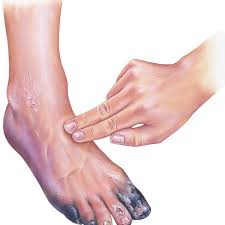
Study Shows Less Invasive Treatments Equally Effective for Women with Peripheral Artery Disease
Peripheral artery disease (PAD) poses a significant health concern, particularly for Americans over 50, with 1 in every 20 affected. However, research into optimal treatments for women with PAD has been lacking. A recent study has shed light on this issue, revealing that less invasive endovascular treatments are equally effective for women as they are for men.
Led by Dr. Serdar Farhan of the Icahn School of Medicine at Mount Sinai in New York City, the study demonstrates that minimally invasive procedures such as angioplasty or stenting help restore blood flow without the risks associated with more invasive options like bypass surgery.
Dr. Farhan underscores the importance of these findings, emphasizing the need for better representation of women in PAD trials. Despite the significance of the study's results, Farhan highlights the ongoing underrepresentation of women in PAD trials and calls for concerted efforts to address this disparity.
Presented at the annual meeting of the Society for Cardiovascular Angiography & Interventions (SCAI), the study tracked outcomes for 639 patients who underwent endovascular procedures or bypass for PAD, with 29% being women. The primary outcome focused on two years post-surgery, combining death, major amputation, or the need for a repeat procedure on the same limb.
The research team found no differences in outcomes based on patients' sex, indicating that both men and women benefited equally from endovascular treatments. Notably, angioplasty/stenting was associated with lower overall risks compared to bypass surgery, with fewer complications and shorter hospital stays for both sexes.
Dr. George Dangas, president of SCAI, emphasizes the importance of evidence-based data for individualized care, especially considering the debilitating consequences of advanced PAD.
The study's findings carry significant implications for advancing care in PAD, underscoring the importance of gender equality in treatment outcomes. However, since these findings were presented at a medical meeting, they should be viewed as preliminary until published in a peer-reviewed journal.